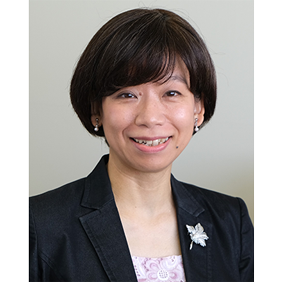2023 JFIPP Research Fellow - Kazumi Wakita

Kazumi Wakita
Professor, School of Marine Science and Technology, Tokai University
[Project Title]
Wellbeing Ocean Planning and Management in the Indo-Pacific
Project Summary
The ocean is an essential element for human wellbeing. People living in the Indo-Pacific region, especially, not only depend on their livelihoods for resources from the ocean but also have deep social and cultural connections with the ocean. Ensuring healthy marine ecosystems as well as securing sustainable uses of marine resources is a key for wellbeing of people in the region. At the same time, human pressures on oceans in the Indo-Pacific continue to grow. How to conserve marine biodiversity under the severe pressures is a big challenge. Not only territorial seas and Exclusive Economic Zones (EEZs) but also areas beyond national jurisdiction, i.e., high seas need to be adequately planned and managed in cooperation among countries. To address above challenges, holistic approach to plan and manage oceans involving local stakeholders has been promoted internationally. However, in many cases, processes of ocean planning and management are not amply well-structured to pay respect to socially vulnerable groups, such as small-scale fishermen and indigenous people. At the same time, as for setting up Marine Protected Areas (MPAs) at high seas, how to proceed it is a big question which no one has clear answers. With the backgrounds above, this study aims at: (i) clarifying key elements to secure equity and fairness at local level in ocean planning and management, and (ii) identifying challenges and possible ways to set up MPAs at high seas in the Indo-Pacific.
This study takes Australia and Hawaii, U.S. as advancing examples from developed countries, and Niue as an outstanding example from one of the Small Island Developing States (SIDS). With the above combination, this project secures a balance between donors and recipients of international projects on ocean planning and management. Semi-structured interviews will be conducted to various stakeholders in the three countries. Transcript of the interviews will be produced and qualitatively analyzed through discussion with collaborators. Also, texts of the interviews will be quantitatively analyzed through text analysis. An interdisciplinary workshop will also be conducted to intensely discuss the theme. Results of this project are: (i) a policy brief on how to ensure fairness and equity in ocean planning and management, and (ii) an opinion paper pointing out challenges and way forward to set up MPAs at high seas in the Indo-Pacific. Moreover, an academic paper delving into wellbeing of people through ocean planning and management will provide an added value to the field of human wellbeing studies by introducing a new case study from Niue, a SIDS.
This project is unique in delving into human wellbeing aspect in ocean planning and management with special focus of indigenous people, including a case study of SIDS, namely Niue. A novelty of this project also lies in delving into challenges and way forward in setting up MPAs at high seas in the Indo-Pacific based on interviews to and discussion among government officials and academics from a SIDS and developed countries.
- What We Do Top
- Arts and Cultural Exchange [Culture]
- Japanese-Language Education Overseas [Language]
- Japanese-Language Education Overseas [Language] Top
- Learn Japanese-language
- Teach Japanese-language
- Take Japanese-Language Test
- Know about Japanese-language education abroad
- The Japanese-Language Institute, Urawa
- The Japanese-Language Institute, Kansai
- Japanese-Language Programs for Foreign Specified Skilled Worker Candidates
- Japanese Language Education for Japanese Children Resident Overseas and for the Descendants of Migrants
- Archives
- Japanese Studies and Global Partnerships [Dialogue]
- JF digital collection
- Other Programs / Programs to Commemorate Exchange Year
- Awards and Prizes
- Publications
